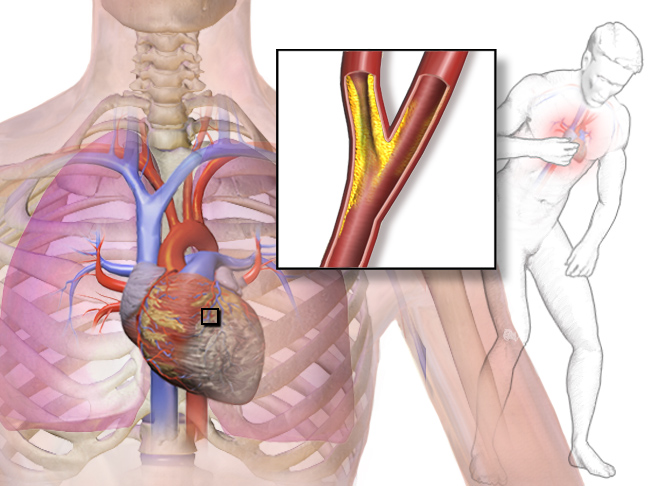Are you at risk for heart disease?
The simple answer is yes. We all are.
As we age, so do our blood vessels. With advancing years, plaque accumulates within the arteries that supply the heart muscle (causing angina and heart attacks), our brains (causing dementia and strokes) and our extremities (causing peripheral vascular disease).
If we are lucky enough not to die from accidents, cancer or dementia, by the time we are in our 80s, we are likely to die from a heart attack or stroke.
But some of us are at much higher risk for premature heart disease.
Most of the causes are modifiable — meaning we can reduce our risks through healthy living or medications. We can’t change our age, but we can slow down the aging process. We can’t choose our parents, but knowing family history can empower us to be proactive — to identify and modify our risk factors.
When we think about cardiovascular (heart and blood vessel) risk. The first place to start is with family history. We consider first degree relatives (parents and siblings), multiple generations and the ages at which they were diagnosed.
In general, premature heart disease is an event (such as a heart attack) in a male under 55 or a female under 65. Increased family risk may also be indicated by heart disease in each generation (e.g. your father, his mother and maternal aunts and uncles).
Some people think of family history with a sense of fatalism.
One patient, whose father and paternal uncles all died in their 40s, expected to die soon after his 40th birthday. It didn’t stop him from smoking.
But a strong family history is like a visit from Christmas Future. That might be your fate if you don’t make changes today. A family history of heart disease should encourage us to be proactive, identify the particular risk factors common in the family tree and treat them early.
Common hereditary conditions that predispose us to premature atherosclerosis (narrowing of the arteries) are high blood pressure, diabetes, high LDL cholesterol and low HDL cholesterol. All of these conditions can be identified early and when appropriately treated with healthy eating, appropriate monitoring and medications, we can reduce or eliminate the increased risk.
The more details you know about your family history the better. Some people only know that their parents had heart conditions. Heart disease might refer to several distinct conditions.
Angina refers to chest pain due to narrowed coronary arteries (These are the blood vessels that supply the muscle of the heart). If those arteries are narrowed, the individual may feel chest pain or pressure with exercise or stress, both of which raise the heart rate and make the heart muscle work harder. The pain is due to ischemia (insufficient blood flow).
A heart attack or a myocardial infarction is the result of a complete obstruction of a coronary artery. When no blood flows at all to an area of the heart muscle, the muscle dies and no longer functions. With a massive heart attack, an artery supplying a large area of cardiac muscle is blocked and the heart can no longer pump blood to the brain and the rest of the body.
Heart failure refers to a significant decline in the pumping function of the heart. When the heart is too weak to pump blood throughout the body, the individual feels short of breath and weak. When the pump is failing, blood backs up into the lungs and extremities, causing swelling of the feet and legs and chest congestion, especially when lying down.
Valvular heart disease refers to abnormalities of one or more of the valves (pulmonary, aortic, mitral or tricuspid) between the chambers of the heart. A valve can be narrowed (e.g. aortic stenosis) or leaky (e.g. mitral regurgitation). Valvular heart disease is associated with murmurs (sounds heard with the stethoscope due to turbulent blood flow). Patients may experience chest pain or shortness of breath.
To learn more attend my free public lecture, “What you Should Know About Heart Disease,” on behalf of the Burnaby Division of Family Practice’s Empowering Patients series. You’ll learn if you are at increased risk, practical tips to reduce your risks and how to maintain your best health in spite of heart disease.
I’ll be speaking at 7 p.m. Wednesday, March 30, at the Alan Emmott Centre, 6650 Southoaks Cres. in South Burnaby. Register online with lcullen@divisionsbc.ca or call Leona at 604-259-4450.
Davidicus Wong is a family physician and his Healthwise columns appear regularly in this paper. For more on achieving your positive potential in health, visit davidicuswong.wordpress.com.



